Archive for January, 2013

YCLA reveals 2013 finalists vying for annual gong
 (CNS): Michael Blackburn, Marzeta Bodden, Victor Crumbley, Melanie Scott and Shomari Scott are the five finalists who will be chasing the title of Young Caymanian Leader this year. Now in its 14th year, the nominees for the annual award were announced by Jonathan Tibbetts, the 2006 YCLA recipient recently. The winner will be crowned in March at the televised awards ceremony at a black tie gala at The Ritz-Carlton. The evening and weeks leading up to the event focus heavily on the leadership and accomplishments of candidates, who were selected from a large group of what the organisers said were impressive nominations .
(CNS): Michael Blackburn, Marzeta Bodden, Victor Crumbley, Melanie Scott and Shomari Scott are the five finalists who will be chasing the title of Young Caymanian Leader this year. Now in its 14th year, the nominees for the annual award were announced by Jonathan Tibbetts, the 2006 YCLA recipient recently. The winner will be crowned in March at the televised awards ceremony at a black tie gala at The Ritz-Carlton. The evening and weeks leading up to the event focus heavily on the leadership and accomplishments of candidates, who were selected from a large group of what the organisers said were impressive nominations .
“The YCLA selection committee was presented with an almost insurmountable task; a task to identify five finalists out of so many suitable candidates who embody the mantra of the Young Caymanian Leadership Award. The five finalists are certainly upstanding young leaders in our communities and they hail from all throughout the islands,” said Jonathan Tibbetts, Chairman of the Nomination Sub Committee.
“The decision process was approached with great care and attention to detail. The members spent much time reviewing, confirming and questioning the submissions. The five finalists were selected for their dedication to growing our island and young people; their discipline in their careers and volunteerism; and their desire to change the islands for generations to come.”
The event takes place on Saturday 23 March.
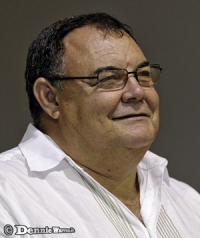
MLA queries booze ads
 (CNS): The independent member for North Side wants the local authorities to start enforcing the law which bans liquor advertising. Ezzard Miller has written to the director of public prosecutions (DPP) asking what legal authority is allowing the police, the Liquor Licensing Board and her office to ignore the provisions of the Tobacco Product and Intoxicating Liquor Advertising Law, which prohibits the promotion of both booze and cigarettes. Miller says he has concerns about the amount of promotion that alcohol gets in Cayman and increases in binge drinking among young people. (Photo by Dennie Warren Jr)
(CNS): The independent member for North Side wants the local authorities to start enforcing the law which bans liquor advertising. Ezzard Miller has written to the director of public prosecutions (DPP) asking what legal authority is allowing the police, the Liquor Licensing Board and her office to ignore the provisions of the Tobacco Product and Intoxicating Liquor Advertising Law, which prohibits the promotion of both booze and cigarettes. Miller says he has concerns about the amount of promotion that alcohol gets in Cayman and increases in binge drinking among young people. (Photo by Dennie Warren Jr)
“This matter of illegal advertising of alcohol is serious. The National Drug Council reports that binge drinking of alcohol increased from 7% in 1998 to 32% in 2010 among teenagers in 7 to 12 grades,” the MLA told CNS this week. “It’s an alarming increase, and while it cannot all be attributed to the advertising of alcohol, a large amount of it is.”
In his letter to the DPP, he points out the provisions in section 4 of the law that states: “No advertising concerning tobacco products or intoxicating liquor shall be broadcast from within the Islands or shown on any cinematograph display.”
The penalty, he says, is a fine of one thousand dollars, but although there is considerable advertising and promotion of liquor all over Grand Cayman as well as on vans, in the local press and flags outside bars, no one is being prosecuted, even though it is an opportunity for government to collect hundreds of thousands of dollars in fines.
The money collected, he said, could be given to the National Drug Council and their programmes aimed at preventing alcohol and other drug abuse. The NDC has persistently stated that booze is Cayman’s most problematic drug and while illegal drugs are misused, the levels of alcoholism and dependency are a very real issue in Cayman society. Miller said that the liquor companies know the value of advertisements because they are very effective, as the increase in young drinkers demonstrates.
“A review of the last several years of the surveys done by the National Drug Council will indicate that the average age of alcohol consumption is trending downward, while liquor distributors, both wholesale and retail, reap the benefits,” he added.
Having raised the matter of the illegal advertising of alcohol in the Legislative Assembly, during his regular appearances on the Rooster talk show and in the media, Miller said there has been no response from the authorities.
“I have to assume that there is some legal authority of which I am not aware, which allows this to continue,” Miller states in his letter to the DPP. He pointed to the frequency with which the police and the DPP enforce the Misuse of Drugs law, which he said he supports, but the authorities appear not to be enforcing the tobacco product and intoxicating liquor law.
"The effects of the continued 'turning a blind eye' on the liquor establishments and the media outlets that facilitate them may be even worse, as it is a scientific fact that alcohol is the most frequently used “gateway” drug and it is counterproductive to allow the liquor establishments to overcome the setbacks caused to their sales by those who promote through education a reduction in the consumption of alcohol", Miller wrote.
As one of the members who passed the law in 1986, the North Side MLA added that the terrible effects of alcohol abuse on society were well documented, which is what prompted the members to pass the law in the first place.
In the letter Miller also points to the topical issue of the Legal Practitioners' Law. Against the backdrop of the debate about the new bill, he said he had learned that local law firms are recruiting non-Caymanians in foreign countries to practice Cayman law related to the financial industry, "knowingly in violation of the current Legal Practitioners Law, so much so that they are now holding the new Legal Practitioners Bill to ransom,” he added in his letter.
He said that he believed Cayman law firms who employ lawyers not admitted to practice law in this country but to do so in other jurisdictions, could be guilty of an offence under the existing law.
“Information coming to me from the legal fraternity in the Cayman Islands to try and persuade me to support the Legal Practitioners Bill in its current form, that includes provisions that will attempt to control and legalize this practice, indicates that such practice is wide spread and represents millions if not billions of dollars in income to these firms,” he said. This position appeared to be confirmed by the Law Reform Commission and revealed by Ian Paget-Brown at the Grand court on Wednesday.
Miller asked the DPP to provide him with the legal authority that allows the offence to take place or explain how such practices are not offences against the law. He said he was “reluctant to conclude” that there was selective enforcement of laws, such as the marine law on the one hand and the legal practitioners' on the other, because those who contravene that law have the resources to challenge its enforcement.
Miller also pointed out how one attorney involved with the ill-fated Tempura investigation was disbarred in his home jurisdiction for a similar offence, illustrating that this was not a trivial matter. He said particular laws should not be ignored by the authorities, when the people have entrusted them to enforcee all laws passed by their elected representatives.
See Miller's letter below

Lawyers’ law stirs up court
 (CNS): The chair of the Law Reform Commission’s committee dealing with the Legal Practitioners' Bill essentially threw in the towel over the controversial law Wednesday when he gave a special address at the Grand Court Opening. Asked by the attorney general to give an update on the critical and stalled piece of legislation, Ian Paget-Brown gave a long and detailed account of the on-going situation regarding the law and what appears to be the continued resistance from the major firms to anything short of a blanket grandfathering of practice certificates to their overseas lawyers without strings when it comes to advancing Caymanians in the profession.
(CNS): The chair of the Law Reform Commission’s committee dealing with the Legal Practitioners' Bill essentially threw in the towel over the controversial law Wednesday when he gave a special address at the Grand Court Opening. Asked by the attorney general to give an update on the critical and stalled piece of legislation, Ian Paget-Brown gave a long and detailed account of the on-going situation regarding the law and what appears to be the continued resistance from the major firms to anything short of a blanket grandfathering of practice certificates to their overseas lawyers without strings when it comes to advancing Caymanians in the profession.
The on-going row between government, local lawyers, the Cayman Bar Association on the one hand and the Law Society and major firms on the other, took centre stage at the ceremonial start of the judicial year. Since 2007, the need for a modernised law to regulate the legal profession in Cayman has become bogged down in arguments about who overseas can practice Cayman law and how local lawyers can be protected from what is now seen as entrenched discrimination by some of the islands’ major offshore law firms.
In an outspoken and transparent explanation of the difficulties the local Law Reform Commission (LRC) has had with the law over the last five years, Paget-Brown took the Law Society and the major firms to task. He accused them of being populated by lawyers who no longer had any loyalty to the jurisdiction and did not care about Cayman. Pointing to the early days when the offshore legal profession was being created in Cayman, he said the lawyers then were loyal to the jurisdiction.
He said that the LRC had believed it had made progress recently but a letter from the major firms to the commission on Friday made it clear that this was not so. He said it appeared that the leading offshore players were not prepared to give anything in exchange for the automatic issuing of overseas practice certificates for all those lawyers the firms say need to be able to practice Cayman law overseas for them to stay competitive.
He spoke of the more than one billion dollars firms have made over the last ten years practicing Cayman law outside the jurisdiction and he said there had to be some way for some of that money to be channelled towards the development and advancement of Caymanian lawyers and the profession in the Cayman Islands.
The committee chair said that he was appalled when the LRC learned the extent of the discrimination against Caymanian lawyers and the things they were being faced with, as he had up until then, he said, believed that people in the profession had been behaving honourably. He said many young local lawyers were unable to express themselves, however, for fear of losing their jobs, which was why the LRC, when it began looking into modernising the Legal Practitioners' Bill, had no idea this issue needed to be addressed as part of the legislation.
Paget-Brown said the commission had received little cooperation from the Law Society and the offshore firms on how the problems and conflicts in the profession could be reconciled within the law.
The only response to the commission’s request for information regarding how many overseas lawyers would require certificates and in what jurisdictions and practice areas, was from the society’s former president, Charles Jennings, whom Paget-Brown said had wanted to know by what authority the LRC was asking such questions.
As a result, he explained that the LRC was forced to undertake its own research and found that Cayman firms employ over 1,500 lawyers overseas. Of those, around 180 practice Cayman law and most will require certificates as only 24 of them have actually been called to the Cayman bar.
The remaining 160 or so attorneys that have no connection to Cayman are the ones the Law Society and major firms now wish to see automatically given certificates. He lamented the request that they also even want those lawyers to be excused from flying to Cayman to be called to the bar. He said this was illustrative of the disrespect some firms have for Cayman’s legal profession.
“It is not some on-line boarding pass to a gravy train,” Paget-Brown said. “It is an honourable profession but they are committed to short term gain,” he added as he pointed to the plight of young Caymanian lawyers being marginalised and the misleading information the law firms were supplying to the Cayman authorities to get work permits for under-qualified lawyers.
Paget-Brown pointed out that the lawyers from the major firms were putting their profits ahead of everything, which was a breach of their professional duty.
“I feel we have been wasting our time,” he said of the work the LRC has done on the legislation but he added that in his own opinion the profession needed the law and in the end he believed that only lawyers based in Cayman should be allowed to practice Cayman law in order to protect the profession.
In his response to the impassioned speech, the new president of the Law Society and a partner at one of the firms which Paget-Brown had taken aim, Alasdair Robertson, said that the profession was in desperate need of a modern Legal Practitioners' Law, which is about the regulation and discipline of lawyers.
“I fear that the lengthy delay and consequent misunderstanding of the objectives of the bill have enabled the bill to become something more than merely a bill to regulate the profession. It is important for us to ensure that the objective of the bill remains clear, namely to introduce a regulatory framework that reflects modern international standards,” he said.
Robertson added that there was a need to look forward and not back as the profession had changed and was less discriminatory. This, he said, was evidenced by the number of Caymanians recently called to bar as well as the number of Caymanians who were heading up local law firms or were partners in major offshore firms.
The law, Roberts said in his presentation, was critical to the future success of the jurisdiction and the profession had to be a meritocracy and he didn’t know of any Caymanian lawyers that would not agree with that. He said the Law Society had published a commitment paper about what the profession planned to do with regard to the advancement of Caymanians.
“Contrary to the perception of some, the profession has, and will continue to ensure the inclusion of Caymanians,” he said. However, he went no further on the issue as he said that he did not believe the Grand Court Opening was necessarily the place to give a detailed response to Paget-Brown.
Meanwhile, Dale Crowley, the president of the Cayman Bar Association, which is calling for a bill that protects local lawyers, said much of the association resources last year were aimed at a modernised Legal Practitioners' Law.
“The association has always strived to achieve a balanced law which enables local firms to compete successfully on a global basis but which provides for the proper regulation and discipline of the profession within and outside of the Cayman Islands, and affords suitable protection for the recruitment, training, development and progression of Caymanians within it,” he said.
Crowley recognized that much work remained and said the association would stick with it to ensure a balanced bill is passed into law this year.
Chief Justice Anthony Smellie, in a short response to the contributions regarding the bill, pointed out that the judiciary was also concerned to see the law passed and once again offered its services to assist with the difficulties being faced.
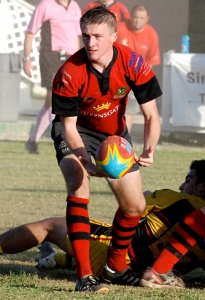
Alex Alexander Memorial Trophy up for grabs
 (CRFU): With the Cayman Islands Men’s Rugby Union XV’s Heineken Charity Shield being settled in December, the real “meat and gravy” of Cayman Rugby, the Alex Alexander Memorial Trophy rolls out on 26 January 2013. The Advance Fire & Plumbing Buccaneers secured the Heineken Shield for the first time with a 14-12 win over the Century 21 Cayman Storm and have lined themselves up as early favourites to win the most coveted trophy in Cayman Islands Rugby.The Alex Alexander trophy (sponsored by DART) is a league trophy fought for by four domestic rugby teams. The John Doak Architecture Iguanas, the Advance Fire & Plumbing Buccaneers, the Queensgate Pigs Trotters and the Century 21 Cayman Storm. Photo Caroline Deegan
(CRFU): With the Cayman Islands Men’s Rugby Union XV’s Heineken Charity Shield being settled in December, the real “meat and gravy” of Cayman Rugby, the Alex Alexander Memorial Trophy rolls out on 26 January 2013. The Advance Fire & Plumbing Buccaneers secured the Heineken Shield for the first time with a 14-12 win over the Century 21 Cayman Storm and have lined themselves up as early favourites to win the most coveted trophy in Cayman Islands Rugby.The Alex Alexander trophy (sponsored by DART) is a league trophy fought for by four domestic rugby teams. The John Doak Architecture Iguanas, the Advance Fire & Plumbing Buccaneers, the Queensgate Pigs Trotters and the Century 21 Cayman Storm. Photo Caroline Deegan
Each of the teams plays the other twice over a 3 month period looking to pick up league points; 4 points for a win, 2 points for a draw (no points for a loss) and bonus points are up for grabs with 1 bonus point being earned for scoring 4 or more tries in a game or for losing a game by less than 7 points, meaning a maximum of 5 league points available for a win or a maximum of 2 league points available for a loss.
As rugby has grown in the Cayman Islands since its start in 1972, the Alex Alexander Trophy has spurred on major improvements in quality of play for the Cayman Rugby Football Union. The brain child of former CRFU Club Captain and local boy Duane Bodden, the trophy competition (named after the late Alex Alexander, a founding member of the Cayman Rugby Union) was designed to improve the fortunes of the Cayman Island National Rugby team in international competition by improving domestic competition. In the early days the trophy was competed for by 3 teams being the Iguanas, a team made up of Caymanians who formed the National Rugby side, the Buccaneers, a team of expat players, and the Pigs Trotters, a team made up of Royal Cayman Islands Police Force officers.
The Pigs Trotters have won the trophy twice since the year 2000, whilst the Buccaneers are the most successful league team having won the trophy 5 times over the same period. The majority of the Buccaneers successes date back to the leagues early days with a highlight in 2009 when the Buccaneers won both the league and Vase knockout trophy. The Iguanas have held the Trophy 4 times more recently with back to back wins in 2006, 2007 and again in 2010 and 2011.
The Cayman Storm, the youngest team out of the 4 competing is the incumbent league champion with their only other league success coming back in 2008 when they, like the Buccaneers after them, won both the AlexAlexander and the Vase knockout trophy. A feat that neither the Iguanas nor Pigs Trotters have achieved.
Whilst games are televised online on www.caymanrugbytv.com games can be watched (at no charge) in South Sound at the Cayman Rugby Football Club and spectators will not be disappointed with the ample fast, hard hitting action.
Next games:
26 January 2013
2pm Century 21 Cayman Storm (Home) vs. Queensgate Pigs Trotters (Away)
4pm Advance Fire & Plumbing Buccaneers (Home) vs. John Doak Architecture Iguanas (Away)
2 February 2013
2pm John Doak Architecture Iguanas (Home) vs. Century 21 Cayman Storm (Away)
4pm Advance Fire & Plumbing Buccaneers (Home) vs. Queensgate Pigs Trotters (Away)
Follow Cayman Rugby on Facebook and Twitter @caymanrugby
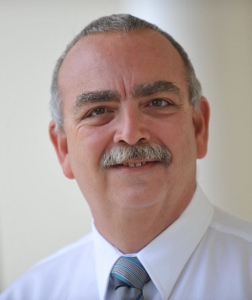
McTaggart enters political fray in capital
 (CNS): As expected, the former chair of KPMG, Roy McTaggart, has announced his intention to run as an independent candidate in what is likely to be the main election battleground of George Town. Hoping to win one of six seats as an independent, McTaggart is expected to be endorsed by the Coalition for Cayman, though in his announcement statement there was no indication that he had yet secured that group's backing. He is the second independent candidate to declare for the capital as his announcement follows former cabinet minister Frank McField’s own declaration. Unlike McField, however, McTaggart has not yet fully set out his campaign stall.
(CNS): As expected, the former chair of KPMG, Roy McTaggart, has announced his intention to run as an independent candidate in what is likely to be the main election battleground of George Town. Hoping to win one of six seats as an independent, McTaggart is expected to be endorsed by the Coalition for Cayman, though in his announcement statement there was no indication that he had yet secured that group's backing. He is the second independent candidate to declare for the capital as his announcement follows former cabinet minister Frank McField’s own declaration. Unlike McField, however, McTaggart has not yet fully set out his campaign stall.
Pointing to the failure of the previous two governments, he said both lacked the ability to lead the country effectively. In more recently cases, he said, overspending, allegations of corruption and a “lack of competent leadership" have "led to increasing debt, fiscal deficits and dysfunction in government,” as he pointed to the need for qualified Caymanians to step up.
“It is time for us Caymanians to elect people who have this country at heart and who will work to restore the quality of living we once enjoyed by bringing honour and pride in a government that is truly for the betterment of these islands. I believe that my country comes before self-interest and that I can work toward its restoration,” McTaggart said.
With what he said was thirty years of successful business experience, he would, if elected, work to ensure the people of George Town and the Cayman Islands are “afforded every opportunity they need to earn their place in our community. And, I’ll put my financial experience to work for the people of the Cayman Islands, developing policies to grow our economy in a positive and sustainable way, put an end to excessive and wasteful spending – and ensure that we reinstate the high quality of life that our people once enjoyed, expect and deserve.”
In the wake of widespread allegations of corruption in government, McTaggart said he was committed to raising the ethical bar and making the Cayman government more transparent and accountable.
He said, “Our leaders are here to serve our people, not themselves. As a CPA, I’ve followed a strict code of ethics my entire career. As your representative, I’ll work to ensure we maintain a high ethical standard within our government, including policies that bring more transparency and accountability to government projects and in our spending, because we can never be too honest.”
McTaggart pointed to the growing unemployment rate among Caymanians, the need to build on successful educational programmes within the local schools and re-establish credibility and stability within government.
However, the likely C4C candidate did not offer a specific political position on the key issues of the day , such as his position on the passage of the national conservation law, the relocation of the George Town landfill, the closure of the West Bay Road, the voting system and single member constituencies, cutting the civil service, the future of taxation in relation to fees and duties, how Cayman can tackle rising crime, the future of the rollover policy or Cayman’s relationship with the UK.
McTaggart is widely known in the business community, having temporarily held the chair of Cayman finance in the past and sat on numerous boards. He is a former Chairman of the Board of Cayman Airways, a member of the Commission for Standards in Public Life and Chairman of the Young Caymanian Leadership Foundation.
See campaign announcement release below.

C4C calls for committee rule
 (CNS): Cayman should strive for a committee style government in which independent minded politicians of integrity will analyse and review the issues facing the islands and come to some form of consensus in the best interests of the country, says the Coalition for Cayman (C4C). The public advocacy group, think tank, potential watch dog and political supporter of the principle of independence, that is itself struggling not to fall into the trap of becoming a political group, believes that while party politics may be a modern day reality, Cayman could still have a committee style government akin to that in the Channel Islands, a style of rule that the former premier, McKeeva Bush, had also advocated in the past when he criticised the constitution for institutionalising advarsarial politics.
(CNS): Cayman should strive for a committee style government in which independent minded politicians of integrity will analyse and review the issues facing the islands and come to some form of consensus in the best interests of the country, says the Coalition for Cayman (C4C). The public advocacy group, think tank, potential watch dog and political supporter of the principle of independence, that is itself struggling not to fall into the trap of becoming a political group, believes that while party politics may be a modern day reality, Cayman could still have a committee style government akin to that in the Channel Islands, a style of rule that the former premier, McKeeva Bush, had also advocated in the past when he criticised the constitution for institutionalising advarsarial politics.
In a presentation to the media on Tuesday, James Bergstrom, the group’s executive committee chair, said the coalition wanted to put Cayman back on course towards a style of government that was more problem solving than political, where the representatives sought out the best solutions based on knowledge and sound advice.
Admitting that this might be a naïve position, Bergstrom said he believed that, despite the current situation and Cayman’s constitution being geared towards party politics, the country could still try for a committee style government.
The group believes that within the party system the politicians are acting on the basis of what they are being told by the party leaders, and not acting on their own conscience. This form of government, it says, is not democratic.
“We are optimistic and believe we can make a change,” Bergstrom stated in the face of questions from the press regarding the entrenchment of party politics in Cayman's political, system and difficulties with forming governments made up of people with opposing views on the main issues of the day.
As C4C is not a party, the chair said; it has supporters — not members — who share their position on the need for better government and who oppose the party system. He said the goal of C4C would be to give their candidates advice on policy but not make policy, despite the publication of their founding principles, which could be interpreted as a policy direction. Nevertheless, Bergstrom added that the group would adopt some positions, though he was not clear on whether this was policy or principle in terms of specific issues.
Wrestling to explain its own identity and how the C4C would expect to see a government formed if candidates of diametrically opposing positions were elected, even on its own ticket, Bergstrom and his coalition colleagues spoke about the need for better government, pointing the finger at both political parties for their shortcomings.
He emphasised the need for politicians to consider and analyse the things they do in government, as he said the lack of analysis and research that goes into some legislation which is passed by government in Cayman was frightening.
Still blaming the party system rather than the politicians for Cayman’s political woes and economic difficulties, the group believes that, although it may endorse candidates that have very different positions on the issues facing the country, they will still be able to successfully join a government.
The group's support and endorsement of candidates will not be based on their personal campaign platform, Bergstrom said, but on their adherence to personal principles. Should any of the candidates the group supports be elected into office or form part of a government, C4C said it intends to continue as a watch-dog over those candidates and intends to publicly condemn those that don’t continue to follow these principles. On the other hand, he also emphasised the need for those candidates endorsed by C4C to maintain their independence.
The C4C has not yet fully explained how their candidates will be able to follow its founding principles to the letter or retain their independence if any of them find themselves part of a coalition Cabinet and bound by the collective responsibility of that position, without resigning over every disagreement with a position the government adopts.
Trying hard not to fall into the trap of being labeled a political group itself, the C4C continues to raise questions in the community about what it really is and how it will fit in terms of the elections law, the campaign, or any future government. The group will be assisting with the financing of the candidates it endorses but it says the donations will be capped to prevent any one individual donor being able to unduly influence a potential candidate.
C4C has still not endorsed any candidates, though it is expected that they will support Roy McTaggart, who has announced his intention to run in George Town, but the group is still campaigning on various politically related issues at present. Coming out of the campaign to encourage people to register to vote, its next goal will be to reinvigorate the one man, one vote campaign as the group also believes that a change to the law could see voters go to the poll this May with just one vote and have the top relevant number elected in each district.
Bergstrom said the next major public awareness campaign before the national poll would be about political corruption and what constitutes corruption.

Interim moves at port as 8 ships sail in to GT
(CNS Business): The new tourism minister has said that a combination of water stations, new benches and shade will help improve the experience for cruise passengers until government gets the project to develop berthing facilities back on track. These are to be the first of a number of interim measures, with the free water and other additions coming at a time when, despite the lack of piers, Cayman is expected to welcome eight ships on Wednesday and some 17,600 passengers. Over 14,800 passengers arrived on six ships on Tuesday and over 4,600 on three ships on Monday, providing significant potential business this week for local retailers, tour operators, restaurants and other service providers dependent on cruise tourism. Read more and comment on CNS Business.
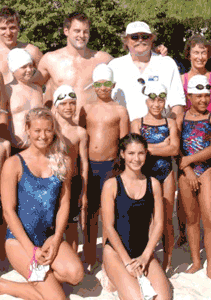
Olympic swimmers take part in local fundraiser
 (CIASA): Olympic Swimmers Liam Tancock, Caitlin McClatchey and Conor Dwyer took to the sea off of Cayman’s world famous Seven Mile Beach last weekend as part of the Cayman Island Amateur Swimming Association’s (CIASA) fund raising weekend. Over 100 local swimmers swam alongside them earning bragging rights to say they swam with Olympians. Alex McCallum also earned the right to say he beat a second Olympian when he crossed the finish line 0.06 of a second ahead of McClatchey. McCallum previously beat 2012 Olympic 10K Gold Medal Winner Oussama Mellouli in the 2012 Pirates Week 5K Open Water event.
(CIASA): Olympic Swimmers Liam Tancock, Caitlin McClatchey and Conor Dwyer took to the sea off of Cayman’s world famous Seven Mile Beach last weekend as part of the Cayman Island Amateur Swimming Association’s (CIASA) fund raising weekend. Over 100 local swimmers swam alongside them earning bragging rights to say they swam with Olympians. Alex McCallum also earned the right to say he beat a second Olympian when he crossed the finish line 0.06 of a second ahead of McClatchey. McCallum previously beat 2012 Olympic 10K Gold Medal Winner Oussama Mellouli in the 2012 Pirates Week 5K Open Water event.
There were two swims, a 200m and a 400m event, which meant that swimmers from Under 8 to Over 70 could complete.
Tancock, a sprinter took on the 200m distance while McClathchey and Dwyer swam in the 400m swim.
“This was my first open water swim,” said Tancock “and it was amazing. What a bonus – to complete your first open water swim in the Cayman Islands in this amazing water.”
Tancock placed first in the 200m event while Dwyer took first place in the 400m event, with McCallum coming second and McClatchey third. The three visiting Olympians were joined in the water by Cayman’s local Olympians Andrew Mackay and Darren Mew (a British Olympian who currently lives and works in Cayman), Heather Roffey who cheered the swimmers on from the beach and Special Olympian Andrew Smilley.
The Sea Swims were the “Dash” of the fund raising weekend which saw the Olympians “Splash” in to clinics with Cayman’s younger swimmers and “Dine” at a fund raising brunch as well. Full results of the sea swim will be posted on www.ciasa.ky .
The CIASA is a volunteer, not for profit association dedicated to furthering the interests of all aquatic sports in the Cayman Islands. CIASA is the recognized Governing Body of aquatic sports in the Cayman Islands and is a member of FINA, UANA, CCCAN and the CIOC.
Officialsurge families to understand law
(CNS): Following the passage of the long awaited Children’s Law and regulations some six months ago officials from the ministry urged families to become familiar with the document. As a result of the changes, the department will also be providing training to social workers and other key personnel who can serve as advocates in protecting Cayman’s children. Children and Family Services Director Alicia (Jen) Dixon the protection of children should be a priority and their welfare of paramount importance. “I am confident that this legislation will serve as a robust regulatory regime ensuring the welfare and protection of our children.in the Cayman Islands.”
The Children Law (2012 Revision) and its accompanying regulations seek to protect children, their well-being and their individual rights with children’s interests at the heart of the legislation officials said.
According to the ministry it provides the legal framework for the implementation of the Convention on the Rights of the Child and the Constitution Order, 2009 Bill of Rights, Freedoms and Responsibilities by covering the scope of child protection, the welfare of the child and parental responsibility. Meanwhile, the regulations provide guidelines for: the approval and monitoring of children’s homes; foster homes; the management of emergency protection of children from all forms of child abuse; the provision of secure accommodation for children; parental and guardian responsibility is maintained; and that complaints made by or on behalf of a child are addressed.
Although the law was drafted and steered through Cabinet and eventually the Legislative Assembly by the former minister Mike Adam the new government minister with responsibility for children is Dwayne Seymour. He said the legislation will not only improve the level of protection for children, but it will also correct any unfair practices and close loopholes.
A copy of the Law and its Regulations can be found online at www.mcagh.gov.ky. For more information, contact the Department of Children and Family Services at 949-0690.
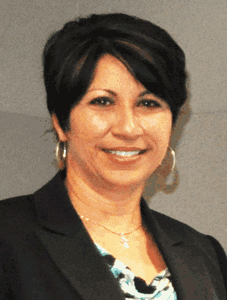
HSA moves to measure quality of patient care
 (CNS): The Cayman Islands Health Services Authority (HSA) is partnering with US based medical research firm, NRC Picker, to better understand how its patients view the experience and quality of care they receive. NRC Picker provides patient experience research and evidence-based best practicesto health care providers, to help them improve the care they offer to patients. The firm’s survey and improvement techniques are based on the foundation of more than 7,000 interviews and focus groups conducted by the Picker Institute and Harvard University.
(CNS): The Cayman Islands Health Services Authority (HSA) is partnering with US based medical research firm, NRC Picker, to better understand how its patients view the experience and quality of care they receive. NRC Picker provides patient experience research and evidence-based best practicesto health care providers, to help them improve the care they offer to patients. The firm’s survey and improvement techniques are based on the foundation of more than 7,000 interviews and focus groups conducted by the Picker Institute and Harvard University.
This research identified what matters most to patients and the firm claims that it is the first to define the concept of ‘patient-centered care’, which is widely adopted in the United States as a standard by which patients’ perspectives can be measured to provide data about the quality of care offered by the provider.
HSA head, Chief Executive Officer, Lizzette Yearwood, explained, “The HSA strives to create an environment focused on the needs of the patient and their family. We are pleased to be working with the NRC Picker team, which is committed to working with us to measure and improve the most important aspects of the patient experience.”
NRC Picker’s approach to measuring patient experience uses what the firm calls the ‘Eight Dimensions of Patient-Centered Care’, which are comprised of: respect for patient values, preferences and needs; coordination and integration of care; information and education; physical comfort; emotional support; involvement of family and friends; transition and continuity; and access to care.